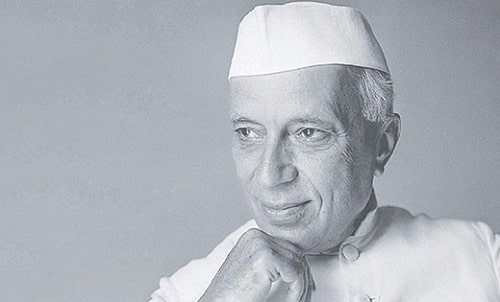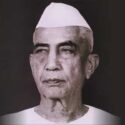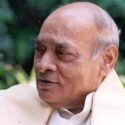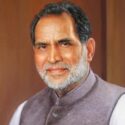Jawaharlal Nehru (The First Prime Minister of India) Biography: Facts, Early Life, Education, Career & More
A persuasive leader in the Indian movement of independence and political heirand a trusted ally of Mahatma Gandhi, Pandit Jawaharlal Nehru turned into the first prime minister of India in the year 1947. He effectively established a number of reforms related to money, education and society in spite of the challenges he faced in uniting the huge population of the country from diverse background. This earned him the regard and adoration of a large number of Indians.
He created a number of policies such as Panchscheel and policies of non-alignment guided the universal relations of India until the episode of the Sino-Indian War in the year 1962. His declining well being and consequent passing in the year 1964, finished his 17-years of service in PM office. His only daughter, Indira Gandhi, and grandson, Rajiv Gandhi, later filled in as PMs of the nation as well.

Early Life, Education and Family
He was born on the November 14, 1889 in a well-to-do Kashmiri Brahman family in Allahabad. His father Motilal Nehru was an advocate and was a well-known name in the Indian National Congress as he served as the president of the party twice. Jawaharlal Nehru had two sisters and he was the eldest of all. As a kid, he was very observant and thoughtful. He spent his early years in Anand Bhavan in Allahabad. This place is now known as Nehru Planetarium. His birthday is celebrated as Children’s day every year and he was fondly called as Chacha Nehru. He was also referred to as Pandit Nehru as he hailed from the Kashmiri Pandit community of India.
He got his education at home until the age of 15 years, and eventually went to Harrow in England and, later, Trinity College, Cambridge for further studies in the year 1907. Subsequent to studying law at Inner Temple in London in the year 1912, he came back to India. He specialized in legal matters with his father – the very noticeable attorney, Motilal Nehru. He was merely 22 years of age at that point of time. In the year 1916, Nehru got married to Kamala Kaul and the next year, Indira Priyadarshini was born who was their only child. His wife died in the year 1936 due to Tuberculosis.
Career
Initially Jawaharlal Nehru practiced as an Advocate in Allahabad’s High court for a brief period as he wanted to become a barrister. But destiny had other plans for him.
Jawaharlal Nehru was greatly impressed by Annie Besant and also joined the Home Rule league as formed by her. It was an association whose aim was to acquire self-government inside the British Empire. After learning of arrest of highly regarded theosophist Annie Besant in the year 1917, Jawaharlal Nehru was motivated to play a significant role in the All India Home Rule League. Eventually his stature and prestige incremented in the league and he progressed to the role of Secretary in the Home Rule league.
In the month of April in the year 1919, British military opened fire on a great many unarmed citizens who were dissenting the recently passed enactment which allowed the confinement of suspected political enemies without any kind of preliminary trials. The Amritsar Massacre offended Nehru and further cemented his resolution to win the independence of India.
Non-cooperation movement of the year 1920 was another instance which brought him to the national limelight. He was the mastermind for organising a number of large scale protests and demonstrations while campaigning for Non-Cooperation Movement. Amid the movement driven by Mahatma Gandhi, Nehru was detained out of the blue for anti-British activities. Through the span of the following two decades, he spent a sum of nine years in prison.
After the movement and the Chauri Chaura incident, there was a division of the congress party. Motilal Nehru and CR Das detached themselves from the Congress and constituted their own party called as Swaraj Party. Motilal urged Jawaharlal to join this party but he ignored and rather stayed loyal to Gandhi ji.
Jawaharlal Nehru worked with many political leaders and nationalists all over the world. Subhash Chandra Bose being one of them. Nehru successfully internationalised the Indian struggle of Independence and it gained momentum and support from various international forums. Bose also helped him in his endeavours by collecting help and resources from other countries. But this friendship also didn’t last for a long time.
In the year 1929, Jawaharlal Nehru was chosen as the leader of the Indian National Congress. This was his first influential position in legislative issues. He endorsed the objective of complete autonomy and independence from British and opposed the dominion status. On 31st of December, in the year 1929, he hoisted the Indian Tricolour in front of Congress volunteers and huge public. At that point of time, the tricolour became really popular and touched the masses.
Nehru was responsible for adding fire to the independence struggle when he gave momentum to the Salt Satyagrah and Civil Disobedience movement. For the same reason he was arrested as well on the 14th of April 1930. He was also imprisoned along with Gandhi Ji and other leader of the Congress Party who joined the Quit India Movement of the year 1942.
Because of Britain’s revelation of India’s interest in the war against Germany at the beginning of World War II without any consultation with Indian leaders, individuals from Congress voted for the Quit India movement on the 8th August 1942. In return for help in the war against Germany, the INC demanded for political freedom from Britain. The very next day, all the leaders of Congress, including Gandhi and Nehru were captured by the British government.
Roles as Prime Minister of India
On the 15th of August, 1947, India at long last picked up its freedom and Nehru turned into the first Prime Minister of the country. He took charge this day and delivered his legendary speech – Tryst with Destiny.
He was selected through a mutual agreement to form a provisional government for leading India. But this new government also faced multiple challenges including the demand for a Muslim State by Jinnah.
After Gandhi Ji died in January 1948, Nehru consolidated and established Congress as the legitimate and solitary authority of Indian Politics along with the help from Sardar Patel.
The interim Government under Nehru’s guidance was for the duration of 4 years from the year 1947 to the year 1951. First ever elections of free India in the year 1951 got a remarkable victory for Congress wherein they captured 364 out of 489 seats.
All through his leadership of 17 years, Nehru supported law based communism and secularism. He also empowered industrialization in India starting with the application of the foremost of his five-year designs in the year 1951. These underlined the significance of expanding horticultural production. He additionally supported logical and innovative advancements through the foundation of higher learning. He initiated different social changes, for example, free state-funded education, meals for children, legitimate rights for ladies which were inclusive of the capacity to acquire property and separate from their spouses and other laws to deny any kind of discrimination dependent on caste or creed
Demise
Sino-Indian War deleteriously affected the well being of Nehru, bringing about a serious stroke in the year 1964 in the month of January and eventually his passing a couple of months later on 27th May. He was called as the Architect of Modern India and after his sad demise India truly lost a gem.
Some interesting facts about Jawaharlal Nehru
1. It was under Nehru’s administration, a number of changes were made to the Hindu Laws. Some of them include increase of legal rights of women and empowering them by giving them social freedom. Besides caste discrimination was also considered as illegal under his governance.
2. He wanted to remove all the religious taboos from the nation and thereby making it one secular state. Article 44 of the Indian constitution was penned down by Jawaharlal Nehru and this article forms the basis of secularism in the nation.
3. Jawaharlal Nehru has written a number of books such as The Discovery of India, Glimpses of World History, Toward Freedom and Letter of a Father to his Daughter. Of this books, Toward Freedom is his biography which he wrote while serving his time in prison.
4. As a matter of fact, there were four assassination attempts made on him. The first and foremost was during the Indo-Pak partition in the year 1947, second was in the year 1955 by a Rickshaw puller, third one was in the year 1956 in Mumbai and the fourth one was in the year 1961.
5. Jawaharlal Nehru’s Delhi residence “Teen Murti Bhawan” is now modified into the “Nehru Memorial Museum and Library”. There are five planetariums set up in Allahabad, Delhi, Mumbai, Pune and Bangalore, all dedicated to Nehru.
6. In order to support the struggle of India’s independence, Nehru turned away from western apparel. The jackets that he wore are named after him as Nehru Jackets.



